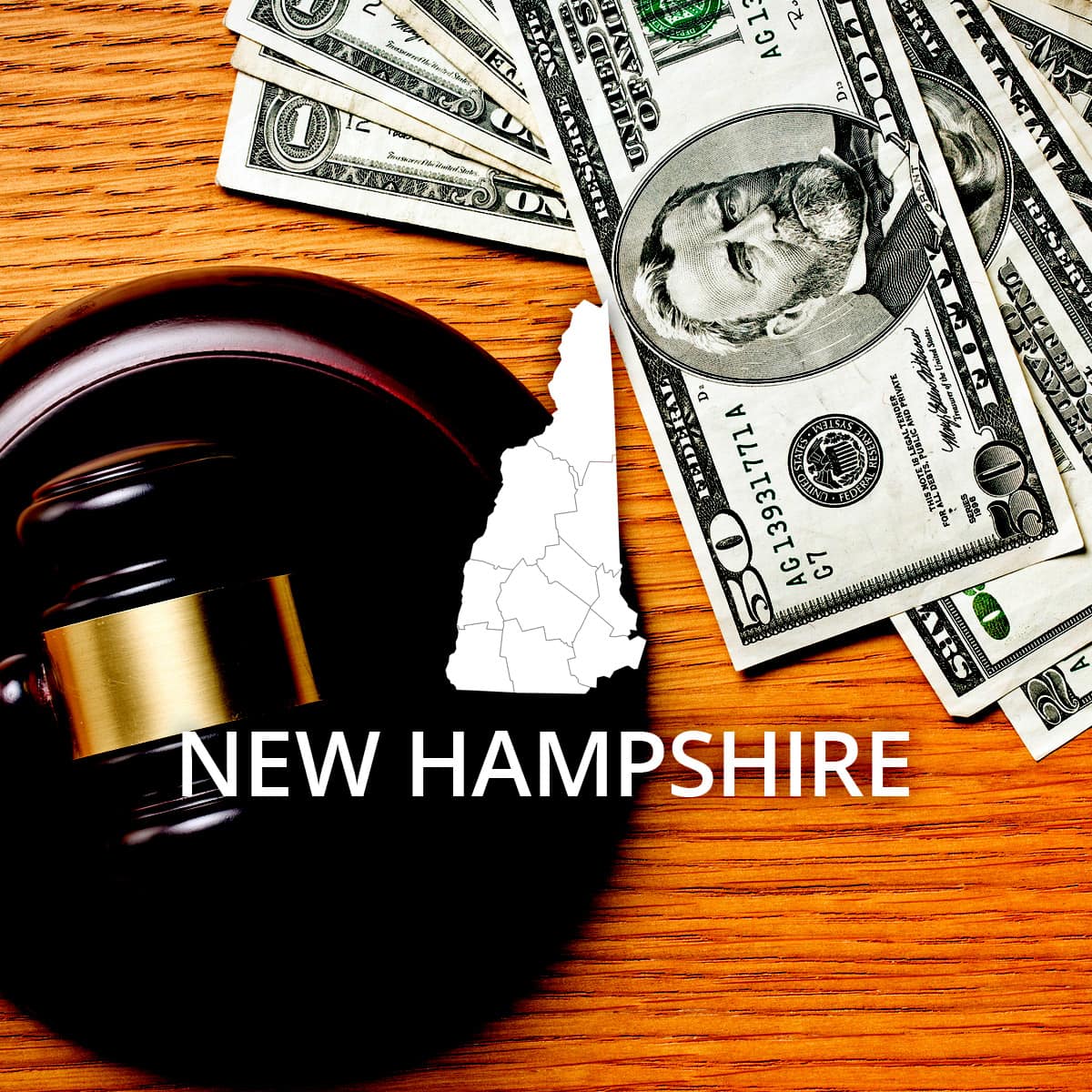 Multiple Bankruptcies: How Often You Can File One?
Multiple Bankruptcies: How Often You Can File One?
Table of Contents
 How to File Bankruptcy in New Jersey
How to File Bankruptcy in New Jersey
 According to the 2005 Bankruptcy Act, all states must be in accordance with federal guidelines for bankruptcy. There is one New Hampshire Bankruptcy Court which carries jurisdiction for all counties in the state. The most commonly filed for types of bankruptcy are Chapter 7, Chapter 11, Chapter 12 and Chapter 13.
According to the 2005 Bankruptcy Act, all states must be in accordance with federal guidelines for bankruptcy. There is one New Hampshire Bankruptcy Court which carries jurisdiction for all counties in the state. The most commonly filed for types of bankruptcy are Chapter 7, Chapter 11, Chapter 12 and Chapter 13.
 Types of Bankruptcy and Terms
Types of Bankruptcy and Terms
Chapter 7 bankruptcy is often referred to as "elimination bankruptcy" as it typically eliminates the most debt. However, a debtor will still be responsible for non-dischargeable debt such as child support, back taxes and student loans. Chapter 7 is an attractive alternative for those with high unsecure debt and a lower income.
Often, those who may be able to pay back what they owe but need more time to do so will file for Chapter 13 bankruptcy. Here the debt is minimized and restructured to allow a repayment period of 3 to 5 years and often the debtor can keep assets such as their home or car as long as they continue to make payments.
Chapter 11 bankruptcies are for businesses that seek debt relief, but wish to stay in operation. Similar to Chapter 13, the business debts are repaid within a 3 to 5 year timeline while assets are protected. For family businesses, such as farming and fishing, there is a specific code called Chapter 12 which allows a repayment period and protects from foreclosure.
Official bankruptcy forms for the U.S. Bankruptcy Courts are available at https://www.uscourts.gov/forms/bankruptcy-forms or RecordsFinder.com Court Forms Section.
 Steps to Filing Bankruptcy
Steps to Filing Bankruptcy
The first step for filing for bankruptcy can occur up to six months before filing. The federal guidelines require all petitioners to receive credit counseling before seeking bankruptcy relief. Some people find the counseling helpful and determine to repay debt on their own, while other choose the route of bankruptcy, where there are other specific steps to follow.
Next, it is imperative for a petitioner to determine for which type of bankruptcy he or she is eligible. This is done by way of a Means Test. The Means Test compares the petitioner's income over the last 6 months with the income of other wage earners in New Hampshire. If the debtor's income is below the median they are eligible for Chapter 7 or Chapter 13. Those that make higher than the median have only Chapter 13 as an option.
Gathering paperwork is an important part of the bankruptcy process. These documents may include, but are not limited to: tax statements for the last 2 years, loan information, deeds to property, titles to vehicles, records of recent major financial transactions, a list of all debts, an inventory of assets, and a detailed list of monthly expenses. Also, for those filing for Chapter 13, a debt repayment summary is required by the court.
Next the documents, the repayment summary and all necessary forms are submitted to the court in what is referred to as "the schedule." Often petitioner's find it helpful to seek legal counsel when filing for bankruptcy while others prefer to do so on their own. The cost for filing for Chapter 7 is sometimes waived and costs $306. Chapter 13's fee is $281 and cannot be waived, but may be paid in installments if necessary. Of course, all of the attorney fees are the responsibility of the petitioner.
The court issues an automatic stay once receiving the paperwork and payment which prevents creditors from having direct contact with the debtor and stops any foreclosure proceedings. Also at this time, a court appointed trustee will review the case and determine what non-exempt assets can be used to repay creditors. Another responsibility of the trustee is to arrange a 341 meeting where the creditors and the debtor will meet to negotiate terms, if no agreement can be made, a judge will intervene.
Lastly, all petitioners for bankruptcy are required to complete a financial management course approved by the court. Those who have filed for Chapter 13 must comply with the repayment summary and continue making payments for the agreed upon amount of time.
 Location Specific Information
Location Specific Information
The single location for New Hampshire's residents to petition for bankruptcy or have a bankruptcy hearing is situated in Manchester. This US Bankruptcy Court can be found at 1000 Elm Street, Suite 1001, Manchester, NH 03101.




